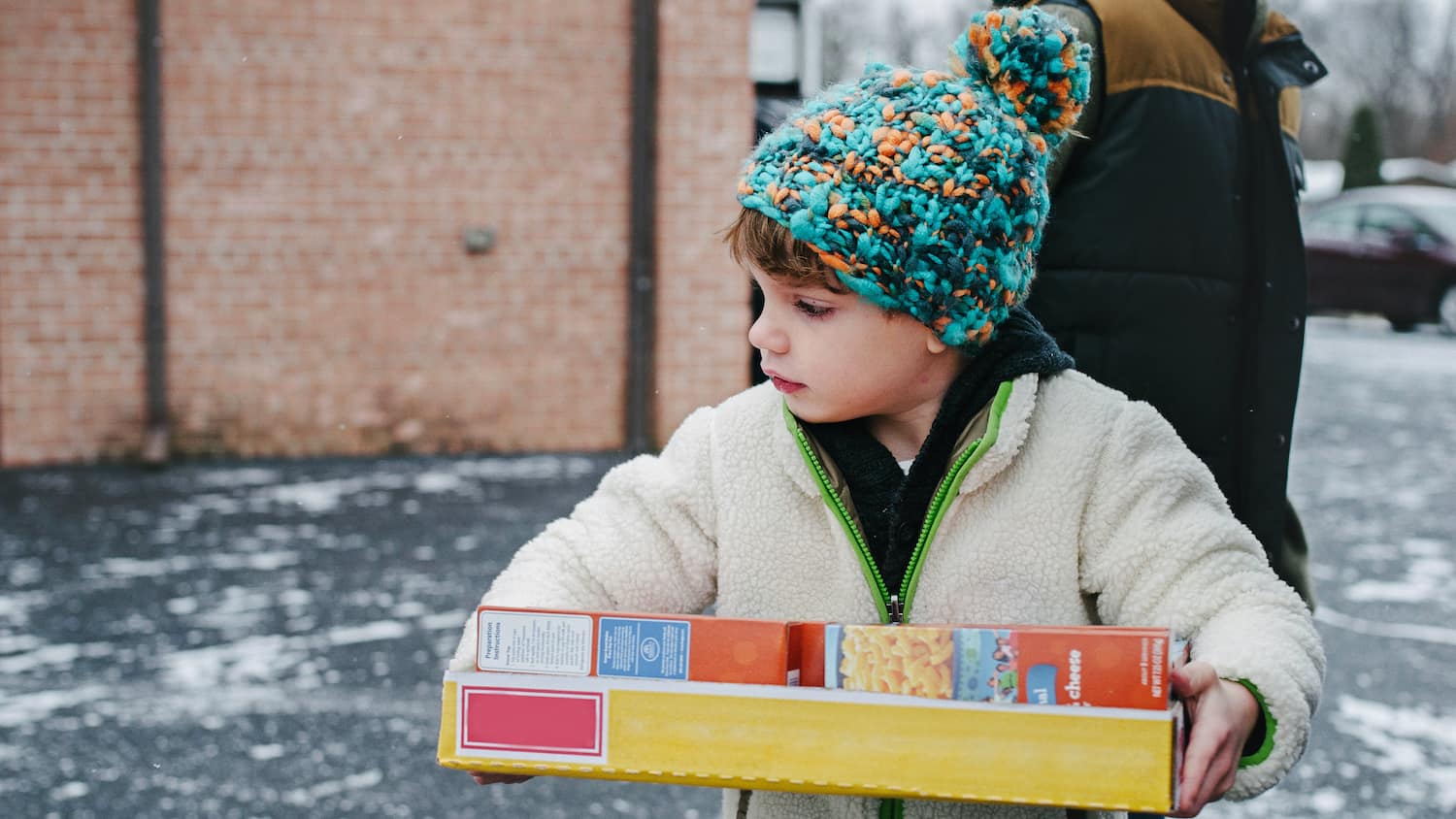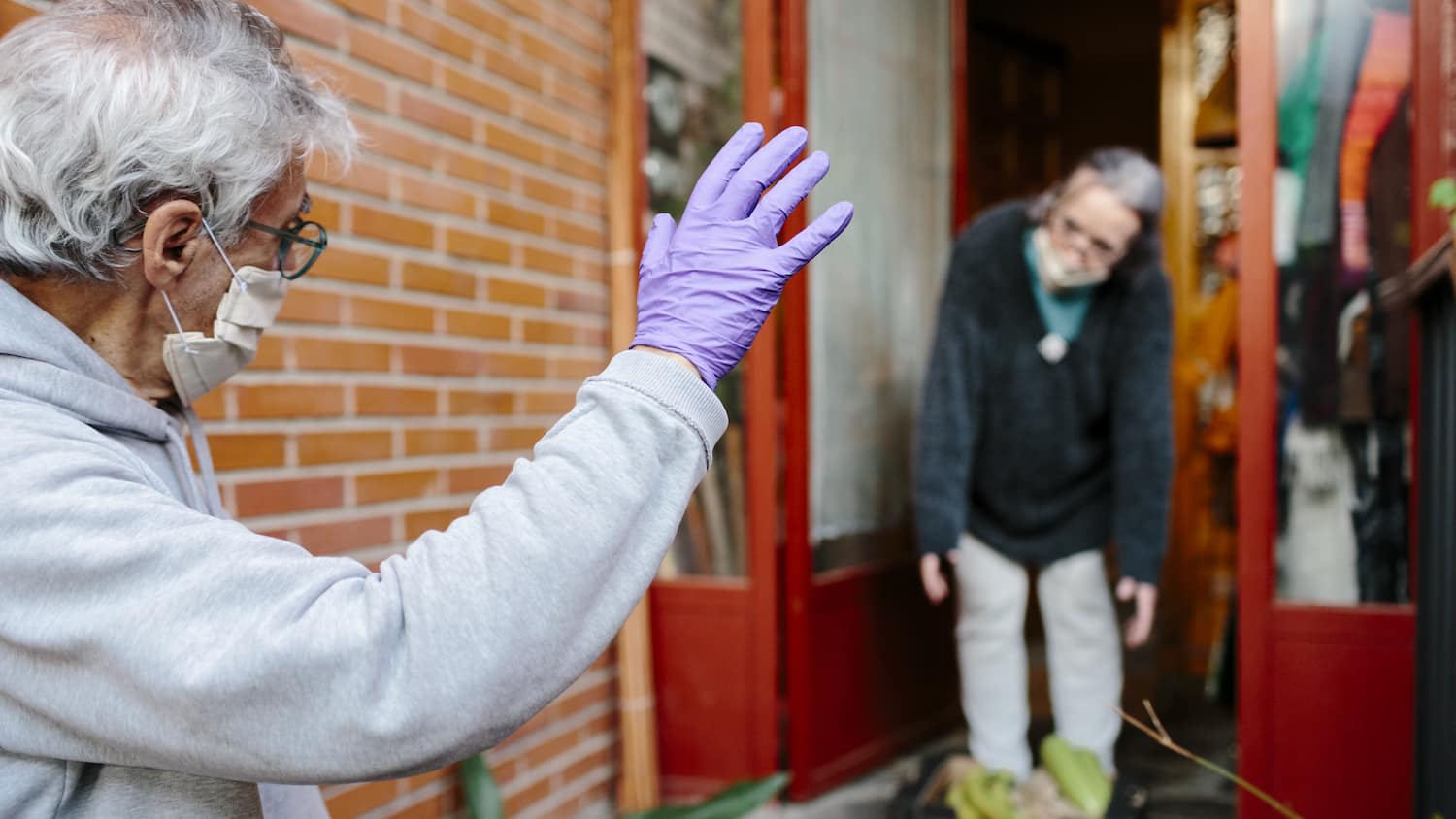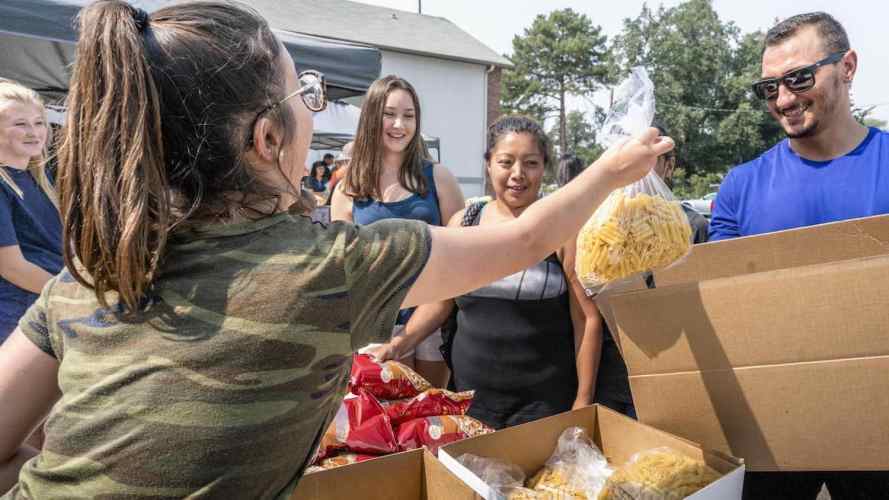The Chronicle of Philanthropy reported in October that fundraising strategies are shifting in light of COVID-19. Some organizations are reducing overall fundraising goals, while others are zeroed in on retaining donors versus identifying new ones. Whatever the shift, the need has never been greater, which is why we’re celebrating our customers who make an impact every day with their inspiring giving-back initiatives.
With in-person events severely curtailed, nonprofits and other organizations have had to get creative in using technology to not only reach donors and grantmakers but also to help organizations promote and scale employee giving.
Here’s a sampling of great things our customers are doing, across a range of industries. Maybe it will inspire you to come up with your own twist on giving back.
Deluxe
Deluxe, a company with a 105-year history that began with the invention of the checkbook, was already in the midst of a digital transformation when COVID-19 hit. As part of that broader transformation, the company implemented Salesforce.org Philanthropy Cloud in January, just in time to react quickly to needs surrounding COVID-19 and the social injustice protests and unrest that broke out near its headquarters in the Twin Cities of Minnesota.
Deluxe quickly responded to unexpected crises throughout 2020 by spinning up giving and volunteering campaigns, creating eight campaigns in the first nine months of 2020. In January, it launched its 2020 Giving Campaign, which was initially intended to be its big annual push for the year, along with a focus on supporting cancer research.
As the year progressed, Deluxe created new campaigns in response to the unfolding situations. The company provided support for victims of wildfires in Australia and California, COVID-19 needs, and cleanup efforts after civil unrest in Minneapolis and St. Paul. It also supported relief efforts for Hurricane Laura survivors. Through its own actions and Philanthropy Cloud, Deluxe provided assistance and support to its local community, the nation, and the world.
In the first nine months, Deluxe’s 6,500 employees raised $266,000, and for the first time, the company has real-time, automated visibility into where that money is going to better inform and understand which organizations are receiving the most funds, which causes its employees are most interested in, and how its employees prefer to engage with each cause.
Kellogg
Kellogg’s vision is for “a good and just world, where people are not just fed but fulfilled” has never been more relevant. This year, many are struggling to feel fulfilled. The need for food is as great as it’s been in our lifetimes. Typically, Kellogg engages in year-round volunteer opportunities that focus on packaging, making, and serving food to families in need. This year, with many employees working from home, the food giant turned its attention to giving campaigns but wanted to keep the fun elements of in-person events intact. Its mission is to nourish people, so they can flourish and thrive.
One example: a virtual leadership challenge. In this March Madness bracket-style competition, business leaders record themselves participating in a competition they could do at home. They were each sent a kit filled with the Kellogg items they’d need — Cheez-It crackers to be used as mini footballs, Pringles cans to flip over, and so forth. Employees “bet” on which leader would win its competitions by donating money through Philanthropy Cloud’s donation pages. The names of employees placing the winning “bets” were entered into a drawing for a gift card. In the end, this one event scored more than $7,000 for the campaign, but more important, it brought together people from all over Kellogg, not just its headquarters in Michigan.

American Family Insurance
Like most in-person traditions, college homecoming events were largely sidelined this year. But American Family Insurance joined with Target to keep the tradition alive, cosponsoring an October YouTube Originals program, “HBCU Homecoming 2020: Meet Me on The Yard,” a global live stream featuring recording artists and influencers, celebrating homecoming weekend at Historically Black Colleges and Universities (HBCU) around the U.S. The event, which ultimately saw more than 2.7 million streams, raised funds for the United Negro College Fund, which split donations with the Thurgood Marshall College Fund.
Earlier in the year, the American Family Insurance group of companies supported COVID-19 relief through grants and donations of $ 6.8 million to non-profits. The total was primarily paid from two foundations, the American Family Insurance Dreams Foundation and Steve Stricker American Family Insurance Foundation, supplemented by a 2:1 Dreams Foundation match of American Family employee and agency owner donations in their local communities.
In addition to American Family Insurance, other group companies are Homesite, The General®, Main Street America and CONNECT, powered by American Family Insurance.
Bitty & Beau’s Coffee
What started as a single coffee shop in Wilmington, N.C. to employ people with disabilities, Bitty and Beau’s has sprouted into a franchised business that has gained national attention for its purpose-driven model. In 2016, knowing 80% of people with disabilities do not have gainful employment, Amy and Ben Wright, a couple with four children — two of whom have Down syndrome and another recently diagnosed with autism — sought to start an inclusive business for people with intellectual and developmental disabilities to have a place to earn a living.
The business thrived, opening three additional locations and growing its staff from 19 people with disabilities to 120. CNN named Amy Wright its 2017 hero of the year, and at Dreamforce 2019, Salesforce gave the Wrights its first-ever Service Equality Award.
Since Bitty & Beau’s already used the Salesforce platform for ecommerce, email engagement, AI chatbots, and more, it was better set up for ecommerce success when COVID-19 forced the closure of its stores. “It was all about continuing to connect with our customers and have this wonderful experience as if they had come into the shop,” said Amy Wright.
In September, Bitty & Beau’s Coffee shops reopened and the Wrights welcomed back their staff and customers to have that meaningful in-person experience.
Downtown Boxing Gym
This Detroit-based nonprofit is working around the clock to battle learning loss associated with the COVID-19 pandemic and school shutdowns, while also addressing food insecurity, the digital divide, and the emotional well-being of its students. The impact of this free academic and athletic program is inspiring and astounding. Founded in 2007 by Coach Khali Sweeney, DBG serves 150 Detroit students ages 8-18 from 30 different ZIP codes and 57 schools across Detroit and nearby suburbs. Its devotion to mentorship, success, and growth has yielded a 100% high school graduation rate among its students, 98% of whom go on to college or a professional job. DBG’s success, and its model of developing the kids it serves as future leaders of the nonprofit, led Crain’s to name DBG a finalist for best-managed nonprofit in 2019. Through tutoring, mentorship, athletics, college, and career readiness, social-emotional skills building, meals, transportation, and more, DBG trains kids for life. Learn more at dbgdetroit.org.
Check out Books Before Boxing, the Downtown Boxing Gym story for a deeper look at this incredible organization.
Sun Basket
When COVID-19 hit, the company, a subscription meal delivery service, started a program called Feed It Forward to deliver free Sun Basket meals to healthcare workers and their families every week. It has already delivered more than 17,000 meals and reached out to its customer base to support even more giving. And those customers stepped up, donating more than $130,000 to provide thousands of free meals across the U.S.
The company, founded in 2014, already had a history of giving. Sun Basket also supports those fighting breast and gynecological cancers by teaming up with Pink Ribbon Girls to deliver healthy meals to patients in their greatest time of need. And, recognizing that millions of Americans regularly lack access to fresh and healthy food, it had already been collaborating with local food banks near its distribution centers, and with Feeding America.
Sun Basket’s vice president of customer service told us recently that its long-term goal for Feed It Forward is to create a sustainable platform that provides greater access to healthy food for those who need it.

Lowe’s
The home improvement giant may be a Fortune 50 company, but it stepped up to support small businesses in a huge way this year. Lowe’s donated $55 million in grants to the Local Initiatives Support Corporation, with $30 million in new funding for minority- and women-owned businesses, which continue to be disproportionately impacted by the pandemic. The commitment makes Lowe’s the largest donor to LISC’s Small Business Relief and Recovery Program and COVID Rapid Relief and Resiliency Fund. Aside from monetary support, the company also encouraged individuals to create at-home, do-it-yourself messages to thank frontline workers, with step-by-step instructions for creating their expressions of gratitude.
The Gap
According to a recent Salesforce survey of more than 20,000 people in 10 countries, people believe that the highest priority for businesses should be ensuring workplace health safety.
With the onset of COVID-19, Gap Inc. responded to this need with the production of masks. They leveraged their deep supply chain relationships and agile operations to provide companies and healthcare communities with high-quality reusable, nonmedical grade cloth face masks for employees.
John Strain, chief digital and technology officer explained: “At the beginning of the pandemic, Gap quickly responded to a customer need for high-quality reusable, non-medical grade cloth face masks.” As offices began reopening, “We started hearing from companies who wanted to help meet the high demand for personal safety, by providing masks to employees. This led to the launch of our B2B mask program.
To date, the B2B product program has sold more than 10 million face masks to employers, including the City of New York, the State of California, Kaiser Permanente, and others.
To help amplify the efforts of Gap, Salesforce purchased 100,000 Gap masks for company employees. And as children and teachers began returning to school, Salesforce donated 16,000 of these masks to public schools in Oakland and San Francisco.
“We’re thrilled to extend our masks to a fellow SF-based organization like Salesforce, and that they are supporting the community by donating to schools in Oakland and San Francisco,” said Strain.
Lead with purpose
Make it easy for your employees to give back by empowering them to make change.































